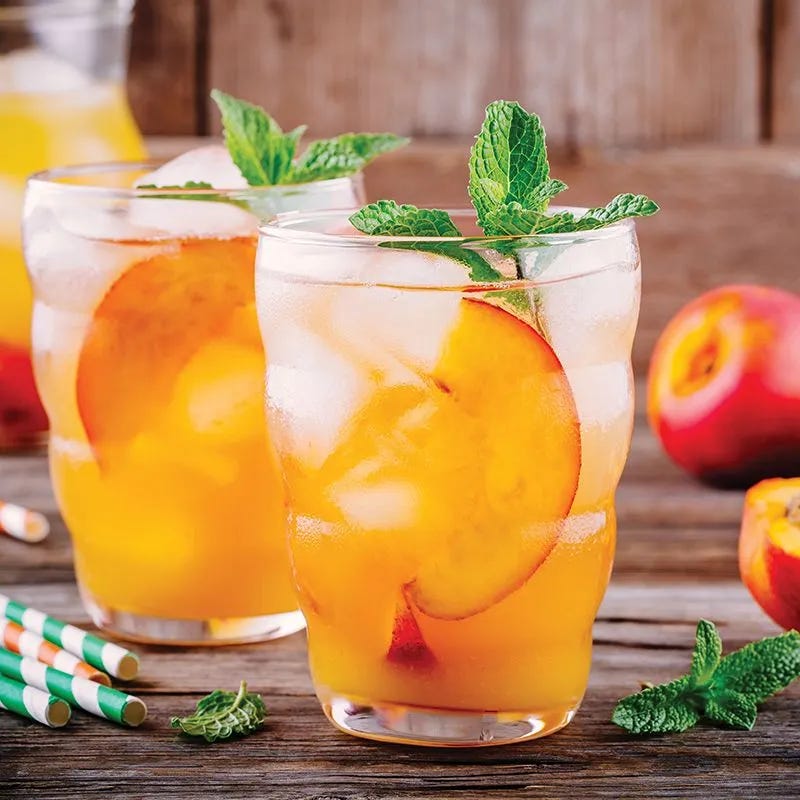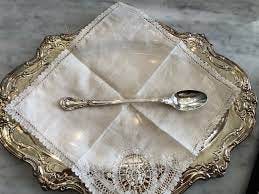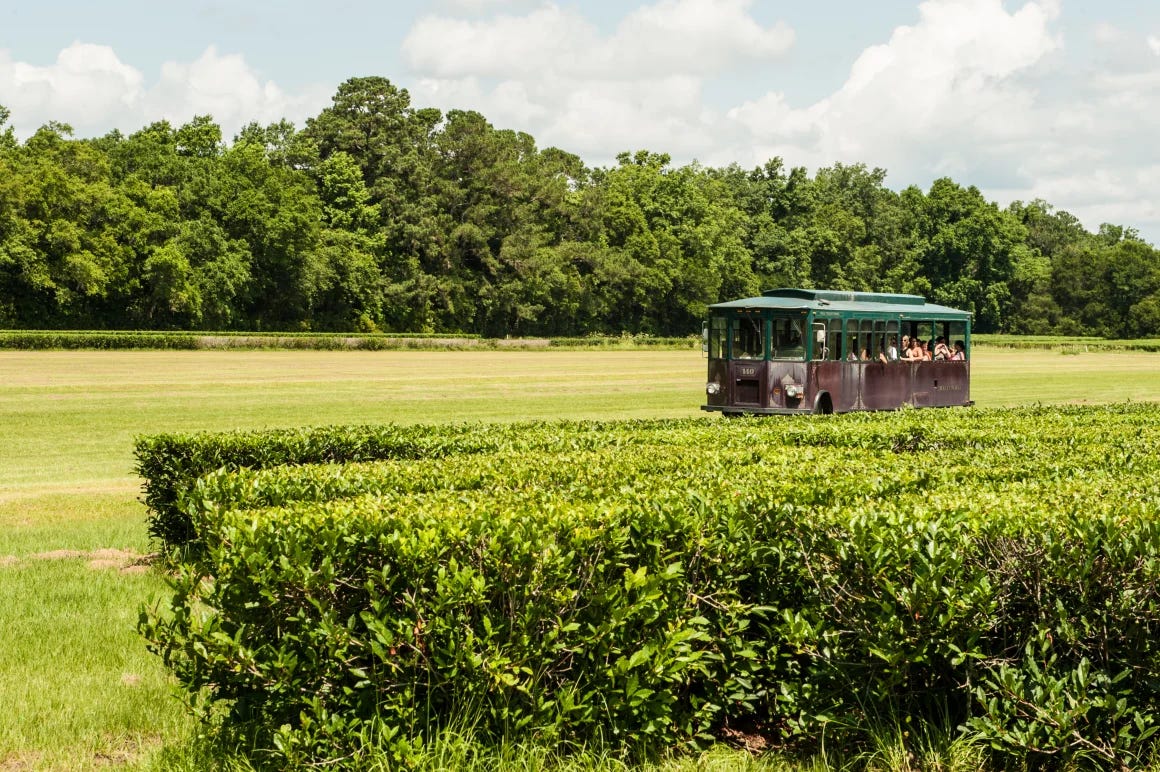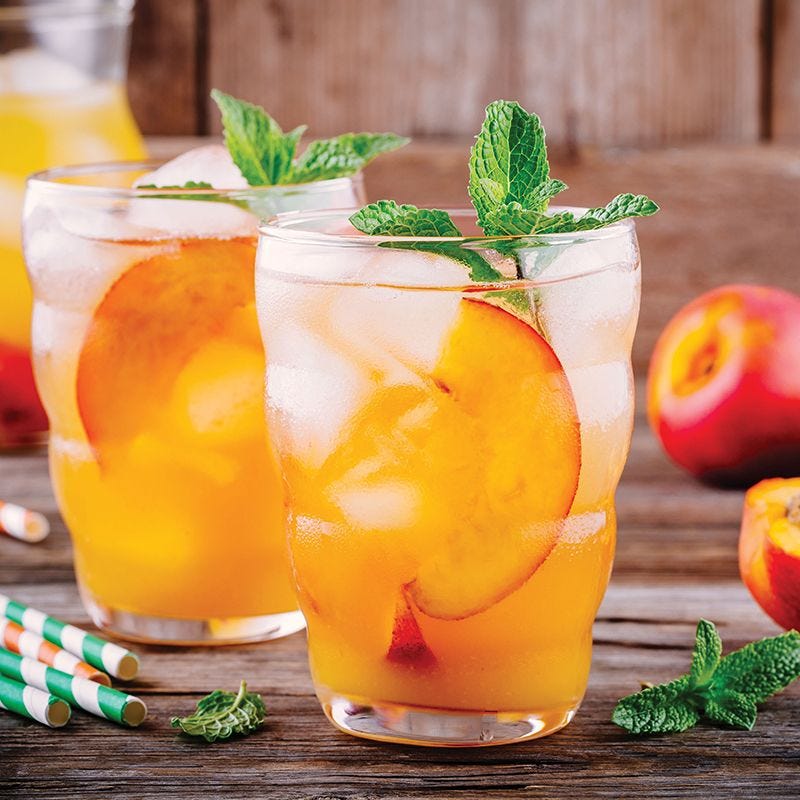Sweet Tea Secrets
How Sweet it Is - Southern Culture in a Glass
My definition of a real Southern girl is one who owns a sweet tea pitcher and at least one deviled egg plate. Sweet tea isn’t just a drink. It’s tradition. It’s Southern culture in a glass, just like Guinness in Ireland or ouzo in Greece. If you’re in South Carolina and don’t order sweet tea, well, bless your heart. It’s a sure sign you’re not from here.
You could say it’s the sweet tea line that divides the North and the South. You may never bake a tray of angel biscuits, lighter than air, or cure your country ham, but I promise you, you can make a perfect pitcher of sweet tea.
Theories abound about why Southerners love their sweet tea. Back in the day, sugar was used as a preservative, and our palates grew to crave the taste. Or perhaps Southerners love sweet tea because it is served ice cold, and it’s as hot down here as biscuits dripping with butter right out of the oven. Our affection for sweet tea can reach religious fervor with folks arguing over which restaurant in town serves the best. It’s an obsession.
And we are just as evangelical about how to prepare it and who does it just right. Of course, the amount of sugar is up to the one who makes it, but normally it runs sweet enough to liquefy your teeth. Whenever I was in Nathalie Dupree’s kitchen, she would say to put in a little baking soda to tame any bitterness and keep it from getting cloudy. It tried it and it worked. I always add a sprig of mint, just because it looks pretty, and a squeeze of fresh lemon.
I remember mother had a collection of specialized silver iced tea spoons, long spoons, and dainty lemon forks. She was a Southern lady through and through.
Believe it or not, Summerville - about 25 miles from historic Charleston - is known as “The Birthplace of Sweet Tea.” There’s only one destination where tea is grown commercially in the United States: Wadmalaw Island in South Carolina, just south of Charleston.
In 1963, the Lipton tea company bought the former potato farm and transplanted untended tea plants that had once been cultivated in nearby Summerville. This was their research farm.
William Barclay Hall bought the property from Lipton in 1987. It was Hall who sought to make it a commercial producer. The Bigelow Tea Company partnered with Hall in 2003 and purchased the plantation.
Visitors can take a trolley ride to explore the grounds and see how it is grown. Traditionally, tea has been harvested by hand, so Asian and African producers using hand-picked leaves have long dominated the market. At Charleston Tea Plantation, they use a machine harvester to cut the leaves off the plants.
While there, we went inside the processing plant where the tea leaves are washed, chopped, heated, and dried. From there, we went to the gift shop where we purchased lots of American tea to take home and give to friends. We plan to go back for their first spring harvest.
Tides of Tradition, Exclusive Cookbook Club
This is our exclusive cookbook club section offering some of my most requested recipes through the years, along with new discoveries. I’ve been testing and sharing cookbook recipes and getting to know authors and chefs who create them for more than 15 years.
Now I’m inviting you to join the Tides of Tradition Cookbook Club, giving you. exclusive access to a vast collection of cookbook content. We are an engaged community of avid cookbook lovers.
Our Cookbook Club is for Founding Members and paid subscribers as a “thank you” for your support.
All are welcome to become a member. Hit the subscribe button and join the fun. Please submit recipes you would like us all to know about. I’d love to hear from you.
You are the best part of creating this newsletter, as restorative as a sunset over the Beaufort River on a spring afternoon! Love to all! xoxo Pat
Keep reading with a 7-day free trial
Subscribe to The Diary of Southern Lifestyle Author Pat Branning to keep reading this post and get 7 days of free access to the full post archives.





